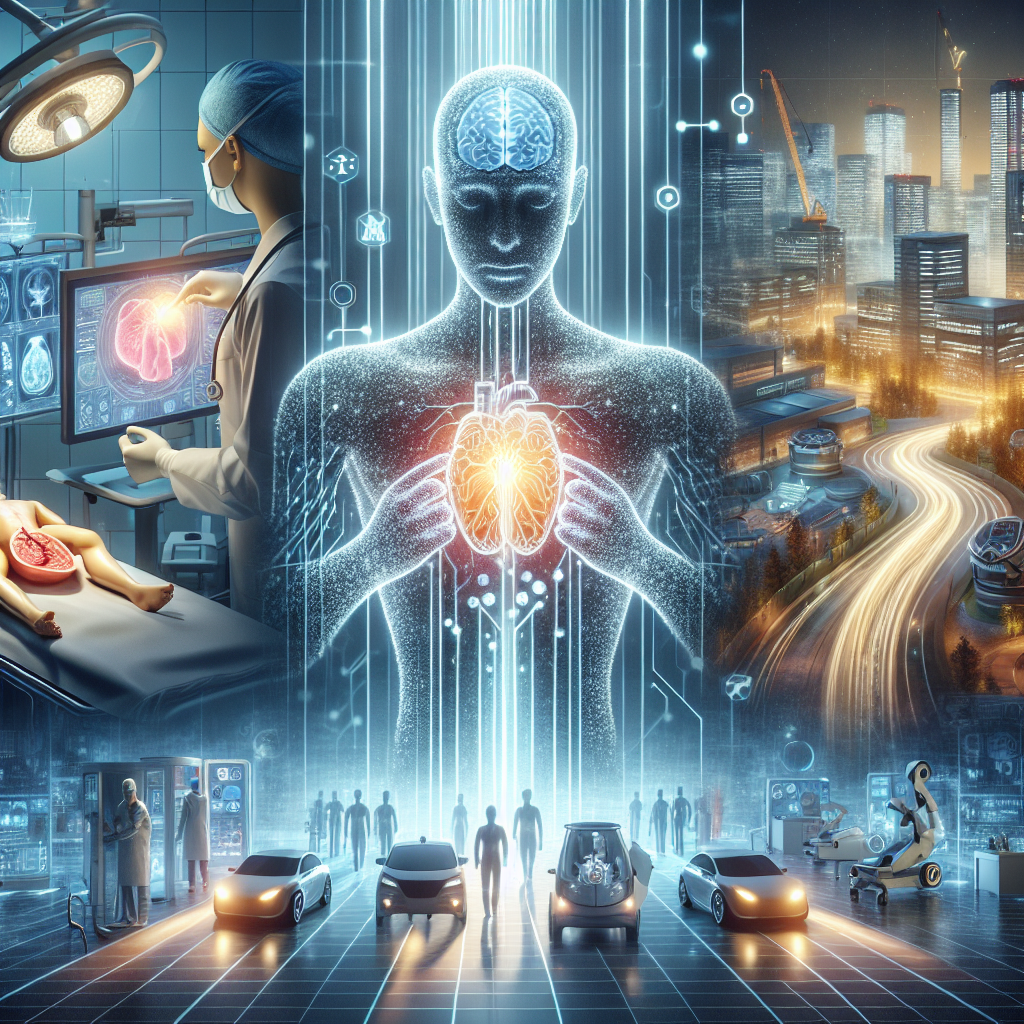Artificial General Intelligence (AGI) is the advanced form of artificial intelligence that aims to replicate the human brain’s abilities to think, learn, and solve complex problems. While current AI systems are limited to specific tasks and lack general intelligence, AGI has the potential to revolutionize various industries, including healthcare, transportation, and many more. In this article, we will explore how AGI could transform these sectors and what the future implications may be.
Healthcare
The healthcare industry stands to benefit greatly from the implementation of AGI technology. With the ability to process vast amounts of data and recognize patterns, AGI could revolutionize medical diagnosis and treatment. By analyzing patient data, including medical history, genetic information, and real-time monitoring data, AGI systems could provide more accurate and personalized diagnoses. This could lead to earlier detection of diseases, more effective treatment plans, and better overall patient outcomes.
In addition to diagnosis and treatment, AGI could also streamline administrative tasks in healthcare. By automating processes such as scheduling appointments, billing, and record-keeping, AGI systems could free up healthcare professionals to focus more on patient care. This could lead to improved efficiency, reduced costs, and better overall patient satisfaction.
Transportation
The transportation industry is another sector that could be transformed by the adoption of AGI technology. With self-driving cars already on the horizon, AGI could further enhance the capabilities of autonomous vehicles. By incorporating advanced decision-making and problem-solving abilities, AGI systems could make self-driving cars even safer and more reliable. This could potentially lead to a significant reduction in traffic accidents and fatalities, as well as improved traffic flow and reduced congestion.
AGI could also revolutionize logistics and supply chain management. By optimizing routes, predicting demand, and managing inventory more efficiently, AGI systems could help companies reduce costs, improve delivery times, and enhance overall customer satisfaction. This could have far-reaching implications for the global economy, as companies could operate more efficiently and competitively in the marketplace.
Other Industries
While healthcare and transportation are two of the most prominent industries that could benefit from AGI technology, there are many other sectors that could also be revolutionized. For example, AGI could enhance cybersecurity by detecting and preventing cyber threats in real-time. It could also improve customer service by providing more personalized and responsive interactions. In the financial industry, AGI could help analyze market trends and make more accurate predictions for investment strategies.
FAQs
Q: What is the difference between AGI and current AI systems?
A: Current AI systems are limited to specific tasks and lack general intelligence. AGI, on the other hand, aims to replicate the human brain’s abilities to think, learn, and solve complex problems.
Q: How far away are we from achieving AGI?
A: While AGI is still a long way off, researchers are making significant progress in the field of artificial intelligence. It is difficult to predict exactly when AGI will be achieved, but many experts believe it could happen within the next few decades.
Q: What are the potential risks of AGI?
A: Like any advanced technology, AGI comes with potential risks and challenges. These may include job displacement, ethical concerns, and the potential for misuse or abuse of the technology. It will be important for policymakers, researchers, and industry leaders to address these issues proactively.
In conclusion, AGI has the potential to revolutionize healthcare, transportation, and many other industries. By harnessing the power of advanced artificial intelligence, we can improve efficiency, reduce costs, and enhance overall quality of life. While there are still challenges to overcome, the future possibilities of AGI are truly exciting.

